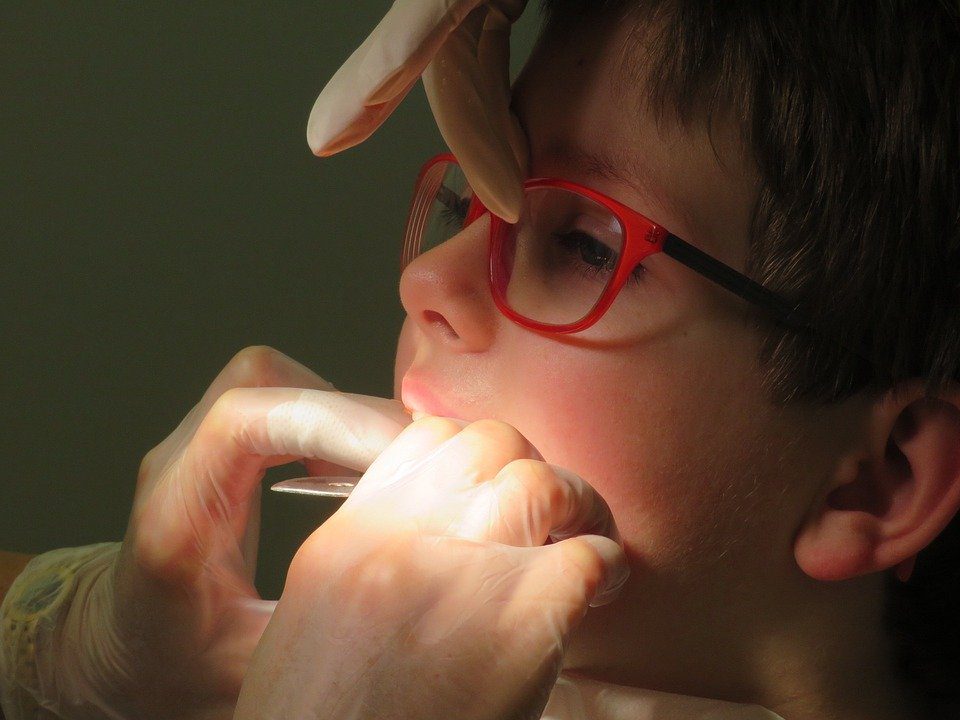A friend of mine was a foster parent to two young children who had never visited the dentist before. Even though they read books about the dentist and talked about what would happen before going, the children exhibited some pretty extreme anxiety both before and during the visit.

(Pixabay / MEISTERvideo)
This particular pediatric dentist had the children sit chest-to-chest on my friend’s lap and then lean backwards so that she could look in their mouths. Unfortunately, even with all of the prep by the foster mom and extra care by the dentist and her assistants, the child still thrashed about in their mom’s arms, screamed, and head-butted my friend in the face, resulting in a nose bleed.
Kids’ discomfort with dental visits can pose a major challenge for caregivers and dental professionals. If you have a child who struggles with dental anxiety, you may have asked yourself why you should bother scheduling routine visits when all previous visits have ended poorly, but try to remember that your child’s standard of living will be far greater if his or teeth and mouth stay healthy.
Based upon our experiences with young patients, we would like to share some strategies to guide you as you strive to maintain consistent dental care for your child in spite of their misgivings about the dentist’s office:
1. Start Early
One of the best ways to prepare your child for success at the dentist is to start taking him or her as early as possible. Some insurance plans (ex: Medicaid) advise parents to take their child in at their first birthday or whenever the first tooth comes in and then to return to the dentist every two months until they turn three. These early, painless, frequent visits help normalize the dentist’s office and make it less of a scary place.
You can also help prepare your child for the dentist by maintaining proper habits at home from the get-go. Even before your child has teeth, you can rub your baby’s gums with a soft cloth twice a day. After the teeth come in, it’s important that you brush and floss not only your child’s teeth twice a day, but also yours. Remember, the power of example is very strong. Modeling good dental habits and making frequent references to the dentist can take some of the anxiety out of a trip to the dentist.
2. Communicate
Children understand a lot more than adults give them credit for, so be upfront and honest about what they can expect from the dentist (though you should stay away from upsetting words and personal horror stories). If your child is elementary school age, you might want to role play with dolls or favorite stuffed animals, so that they get comfortable with the idea of what might happen at the dentist.
Acknowledge their fears, but combat them with kid-friendly information in the form of books and videos. If possible, try and arrange a tour of the dentist’s office before the visit to help them get used to the sights, sounds, and smells. Let them know that they can ask the dentist questions before, during, and after their check-up.
Your child’s dentist may prefer you to be either visible or out-of-sight, depending on your child’s reaction to having you near. If you stay nearby, be a cheerleader and keep up encouraging small talk to help your child stay comfortable. If the dentist is ok with it, you might even be able to hold your child’s hand to help him or her stay calm during the exam.
3. Be Prepared
For younger children, it’s important to bring a distraction, whether it be a favorite blanket, toy, or book. Be sure to dress your child in comfortable clothes, and make sure that they eat something before arriving. It may seem counterintuitive to eat before the dentist, but even the best patients don’t make good choices when they’re “hangry.”
You should also plan a treat for after the appointment to help the child associate the dentist with good feelings. It’s a fine line to walk between planning a treat and straight-up bribery, but the difference is that bribery insinuates a positive outcome from a negative experience. You don’t want your child to think that they only get a treat if they suffer through the dentist’s chair! Instead, don’t make the treat a big deal and don’t promise it before and throughout the visit. Simply take a little time after the visit to do or eat something special together to build up a positive memory.
4. Set the Example
Your example is one of the biggest factors in your child’s response to the dentist. If you’re anxious and worried about the dentist, it’s almost a guarantee that your child will be anxious and worried. Even if you have had negative experiences at the dentist in the past, you need to put your own fears aside for the sake of your child.
You can also set a good example by going to your own appointments and using appropriate hygiene. Brush and floss daily, use mouthwash, drink a lot of water, eat healthy foods, and limit sugar. Making these habits a priority will help your child understand the importance of the dentist.
5. Medication
Some children may need sedation dentistry to have a successful trip to the dentist. Learn more about sedation dentistry here to see if your child is a good candidate.
If you need more ideas about calming your child’s concerns about dental work, contact our kids’ dentist office in Davis County.
